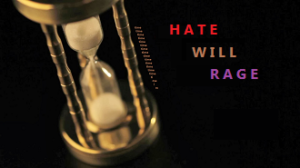
Error, cholera and thymós
Just as scientific error is assumed to be part of scientific research, errors in human and social relationships should not lead to disruption and the return to connection between people or groups will inevitably involve some type of forgiveness.
errors in human and social relationships should not lead to disruption and the return to connection between people or groups will inevitably involve some type of forgiveness.
It is often possible that the error is not assumed, but implied, this is because, we justify the path we take and make considerations about our lack and end up not assuming it, but the return should always be tried once forgiveness sana, and allows the dialogue to move forward.
Peter Sloterdijk wrote about the “timotic” situation of our time, Thymós is at the base of Plato’s theory to designate the “organs” from which the impulses, the excitations, the most inflamed affections are born, it seems something present in our time and so its book Ira e Tempo (Cholera and Time, in Portuguese translation by the publisher Relógio d´Água).
The preferred subject could not be anything other than politics, it is undoubtedly the pole of catalyzing hatreds and grudges, where forgiveness and dialogue seem to be increasingly a distant point that will never be reached, and the reverse of this is …
These impulses cross not only social networks, they pass through political journalism and polarize between parties, people and social groups, what Sloterdijk does in the form of “analysis” is that there is a state of proliferation (attention, it’s not what Byung Chul Han will call it psychopolitics, or the old “mass politics”), we have already drawn attention to Karl Kraus, who in his time between wars, drew attention to the discourse of the press and intellectuals.
In one of his comedies, “Walpurgis’ third night”, he said that “about Hitler nothing comes to my mind”, it is logical that he did not ignore the danger of that speech, but he warned journalists and writers who insisted on just mocking and he said that the media seemed to like the indignant but impotent citizen, so it has the opposite effect of the desired one.
An analytical look at the psychopolitics that Chul Han does is not dispensable, even though we are equipped with little knowledge on this matter, it would verify that the state of high tymotic tension, established by the media to guarantee the success of individuals who are charged with “ thymós ”, leads us to an endless (apparent) civil war.
It is as if all anger finds its “political economy” only in what Sloterdijk calls “rational” cynicism, a kind of “world bank of anger” that catalyzes, not by chance, opposite sides of the current polarization. Just look at politicians of different trends to see how attached they are to this trend, so resentment and legitimation of crimes make popular indignation impotent, claiming appetite and becoming a blank slate for any conversation, even if it comes from one. liberating feeling that should point to the new.
The absence of forgiveness or at least tolerance, makes violence and false radicalism visible and hides impotence.
SLOTERDIJK, P. (2012) Rage and Time – A Psychopolitical Investigation. USA: Columbia University Press.









